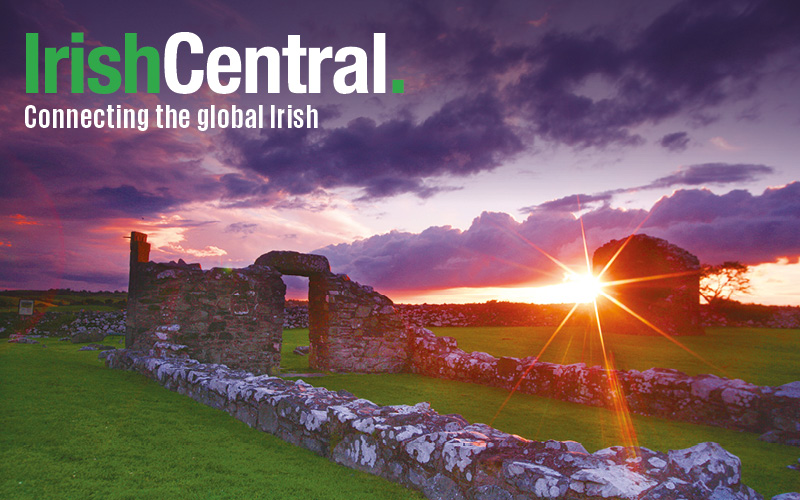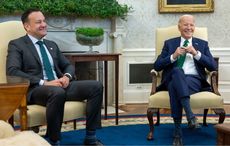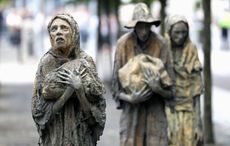Former British Prime Ministers Tony Blair and Sir John Major placed their political differences aside today as they traveled to Northern Ireland to warn of the dangerous consequences to the future of the peace process if the United Kingdom were to leave the European Union.
The UK will hold a referendum nicknamed “Brexit” on June 23 to decide if they wish to leave the EU, a move the former Prime Ministers believe would put the Good Friday Agreement in jeopardy.
Both Blair and Major were key players in the lead up to peace in Northern Ireland, Major working alongside the Irish government for the Irish Republican Army's ceasefire in 1994 while Blair oversaw the inclusion of Sinn Féin in the Good Friday Agreement talks.
The former political rivals have now joined forces as members of the “Remain” camp to convince the British public that being an EU member is better for the future of the country.
See the highlights from Sir John Major and Tony Blair's Northern Ireland campaign against #Brexit in one minutehttps://t.co/sAnVLjdhFY
— Press Association (@PA) June 9, 2016
Speaking on Ulster University's campus in Derry, they warned of a “hard border” that could be revived between Northern Ireland and the Republic, a border that could potentially give rise to political tensions again after years of successful peace.
“We understand that, although Northern Ireland is more stable and prosperous than ever, that stability is poised on carefully constructed foundations,” said Blair, a former Labour Prime Minister, while voicing concerns echoed by politicians in the Republic and by former US President Bill Clinton that a new border intensified border could place on north-south relations.
They suggest that Brexit would result in a border between an EU and non-EU country, where frontier controls and custom checks would be introduced for travel to and from the six counties, ending the current fluid movement of goods and people across a near-invisible border.
“Don’t let them take risks with Northern Ireland’s future. Don’t let them undermine our United Kingdom,” he added.
Read more: British Chancellor of the Exchequer warns Brexit would “shock” Northern Ireland
Major also voiced concerns over a possible breakup of the UK if the public decide to leave the EU.
“I say without a shadow of doubt in my mind that the wrong outcome on June 23 will affect our union,” the former Conservative prime minister said, referencing in particular his fears of a second referendum on Scottish independence if Brexit is passed, especially if Scotland votes to remain but the majority of the UK disagree.
“That means the unity of the United Kingdom itself is on the ballot paper.”
“I believe it would be a dreadful mistake to do anything that has any risk of destabilising the complicated and multi-layered constitutional settlement that underpins stability in Northern Ireland,” he continued.
Northern Ireland Secretary, Theresa Villiers, who is pro-Brexit, has argued, however, that free movement would remain between Ireland and Northern Ireland no matter the outcome. She believes support for the peace process will remain “rock solid” despite the term of the Good Friday Agreement being outlined under the illusion that both Ireland and the UK were EU members.
"The vast majority of people in Northern Ireland believe their future should only ever be determined by democracy and consent and not by violence. I very much hope figures who played such an important role in the peace process would not suggest that a Brexit vote would weaken that resolve in any way,” she said.
"Whatever the result of the referendum, Northern Ireland is not going back to the troubles of its past and to suggest otherwise would be highly irresponsible."
Read more: A “Yes” to Brexit would be disastrous for Irish / British relations
DUP deputy leader Nigel Dodds has also voiced his concern over the prime ministers’ comments stating they were "dangerous, destabilising and... should not be happening".
Other concerns have been raised that in the event of Brexit, passage through Northern Ireland could then be used by EU nationals from third countries such as Poland or Romania to gain access to Britain.
In response to this, Brexit campaigner Nigel Lawson said: “There would be border controls but not a prevention of genuine Irish coming in.”
Blair and Major, who led the country between 1990 and 1997 and 1997 and 2007 respectively, visited Northern Ireland today in the hopes of spinning the debate on Brexit away from the issue of immigration.
Polls continue to show very tight results with the latest survey from the Financial Times stating that 45% wish to remain in the 28-nation EU bloc while 43% wish to leave.
Former Prime Minister Tony Blair: Bringing Major & me together is an absolute commitment to the UK's national interest & the interest of NI
— Stronger In Press (@StrongerInPress) June 9, 2016
Tony Blair: Europe an important part of the context in which peace in Northern Ireland was achieved pic.twitter.com/XscxxT14Ox
— Nick Eardley (@nickeardleybbc) June 9, 2016
H/T: Financial Times




Comments